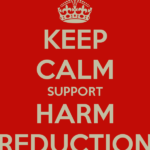Substance abuse addiction can take a hold on an individual’s life for a long time, affecting relationships, employment, physical health, and mental health. Once you have battled addiction, it can keep a hold on you for a lifetime, so it’s imperative to learn how to cope with stress, anxiety, and other triggers in a healthy way in order to prevent a relapse.
Living in recovery means taking things one day at a time. Learning how to get your life back on track after dealing with an addiction can take a little while, so it’s imperative to be patient and map out a plan for your specific needs. Set attainable, reasonable goals so that you won’t feel overwhelmed or let down, and garner support from your friends and family so that you have someone to lean on when times get tough.
Keep reading for some great tips on how to get your life back on track when you’re in recovery.
Get Back on Financial Track
Addiction may have taken a toll on your finances, so it’s important to put yourself back on the path to financial wellness as soon as possible. Even if you’re not ready to go back to work yet, there are still steps you can take to save money and repair your credit. Start by taking a look at your budget; if you don’t have one, now is the time to create one. Try to cut expenses wherever you can in order to get on top of bills, especially if you spent time in a treatment facility and are still paying for it. For example, eating at home instead of dining out will add up in your favor quickly.
If your credit score is a low — especially if it dropped while you were in the throes of addiction — you’ll need to take steps to repair that, too. Pay at least the minimum balances you owe each month, and if possible, work with your lenders to see if you can consolidate any of your debt. If you think you may have been a victim of identity fraud while you were using, it’s advantageous to work with a credit repair company that can remove errors from your credit score. ConsumersAdvocate.org notes that “errors can include accounts that don’t belong to you, bankruptcies or legal actions that weren’t yours … and debts that can’t be validated,” all of which may have occurred if you were taken advantage of while you were under the influence.

Photo via Pixabay by stevepb
Exercise Daily
Daily exercise is important because it not only keeps you physically healthy, it affects your mental health in a positive way as well. Studies have shown that working out regularly can help boost your mood, ward off depression, and keep you motivated and energized, which is wonderful for individuals who are in recovery. Look for a routine that you can easily stick to by incorporating something you already enjoy doing; swimming, playing a sport, and gardening are great examples.
Pick a Hobby
Life in recovery can be hard on your emotions, especially if you had trouble with relationships before you chose a sober path. Practicing a hobby can help you release some of those negative emotions in a healthy way and will allow you to cope with stress and anxiety. Don’t be afraid to try some new things; you might enjoy painting, writing, dancing, cooking, singing, sewing, gardening, or woodworking even if you’ve never attempted them before.

Photo via Pixabay by Fachdozent
Get Outside
Getting out into nature can be good for the mind, body, and soul. Many people have found that spending time outside helps them feel more relaxed, more spiritual, and more active, especially when there’s an opportunity to go hiking and explore a bit. Depending on where you live, there may be plenty of places you can go to clear your mind and enjoy nature; look online for the best outdoor spaces in your area.
Spend Time with People You Enjoy
Many people who are in recovery have a hard time reconciling with family members and friends after a period of substance abuse, which can lead to feelings of isolation and depression. If this is the case, make it a point to spend time with the people you love. Talk about what you’ve been through; being open and honest can really be beneficial in repairing a relationship. Having friendships is extremely important for your mental health.

Photo via Pixabay by trevoykellyphotography
It can also be helpful to forge new friendships, so make an effort to be social and meet new people. Coffee shops, bookstores, and local events are great places to strike up a conversation with someone interesting.
Getting your life back on track after living with substance abuse can be a long and winding road. You may feel as though you’re doing it all alone, or that things will always be difficult for you. Remember that you are not alone; reach out if you feel you need help.
Featured photo via Pixabay by MatanVizel










